British Science Week 2025: Change and Adapt
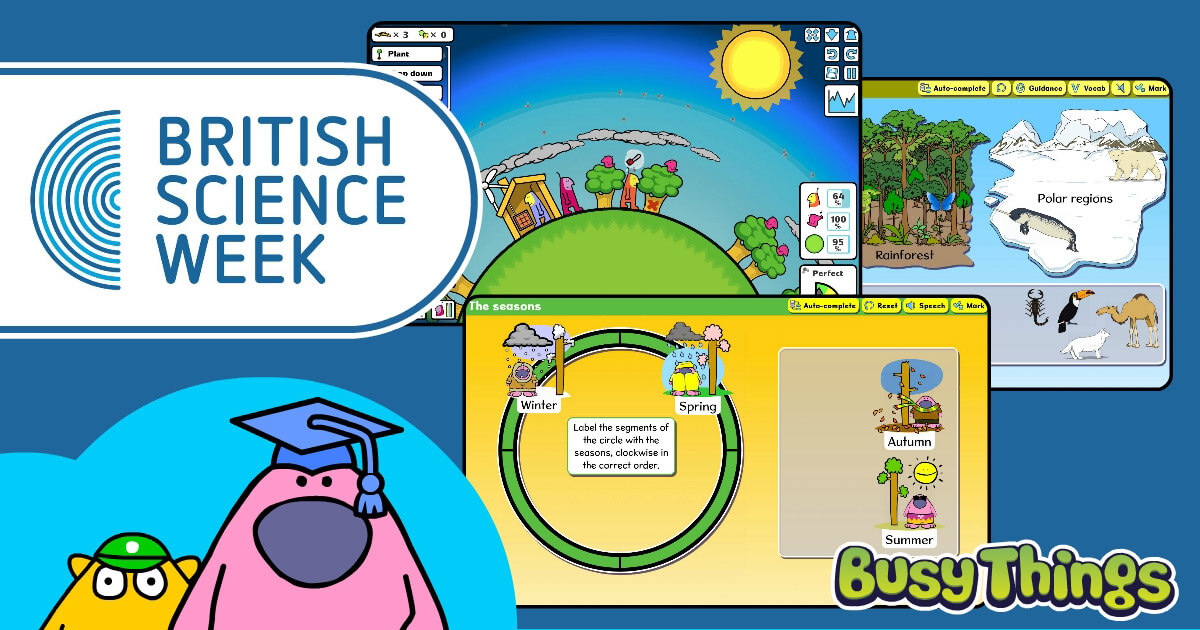
British Science Week celebrates everything to do with science, technology, engineering and maths. In 2025, it takes place between 7th and 16th March, and its theme is ‘Change and adapt’.
In this blog, we look at some of the topics you could cover and highlight Busy Things’ activities which are a good fit with the theme. You’ll also find activity packs here on British Science Week’s website, which will give you additional inspiration for hands-on learning.
British Science Week 2025 and Busy Things’ activities that support it
1. Seasons
The seasons are a great place to start when looking at things that change and adapt. So many changes take place between winter, spring, summer and autumn and our activity, ‘Ordering – Seasons’ will help you explore them with your class.
Aim of the activity:
To place the pictures/labels on the circle, ensuring the seasons run clockwise and are in the correct order.
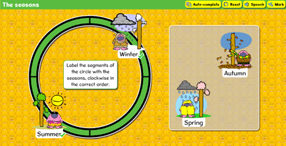
What will your pupils learn?
This activity helps children learn the basic differences between the seasons. They will learn about the weather that is typical for each season and how people adapt to the changes.
2. Animals living in different habitats
Just as we adapt to our changing environment, animals do too. Our ‘Global habitats’ sorting activity explores how animals adapt to their surroundings.
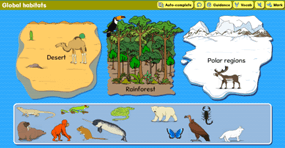
Aim of the activity:
To sort the animals by their natural habitats, i.e., desert, rainforest, at the poles.
What will your pupils learn?
This activity is fantastic for learning about animals’ need to be camouflaged and the other ways they adapt to meet the challenges of their environments.
3. Life cycles
At its very simplest, a life cycle shows the changes that occur for a particular animal at different stages of its life. It naturally adapts over time to work with the environment in order for it to eventually produce offspring of its own.
We’ve lots of activities, which explore life cycles for plants and animals, such as our ‘Butterfly life cycle’ activity below.
Aim of the activity:
To write about and illustrate the life cycle of a butterfly.
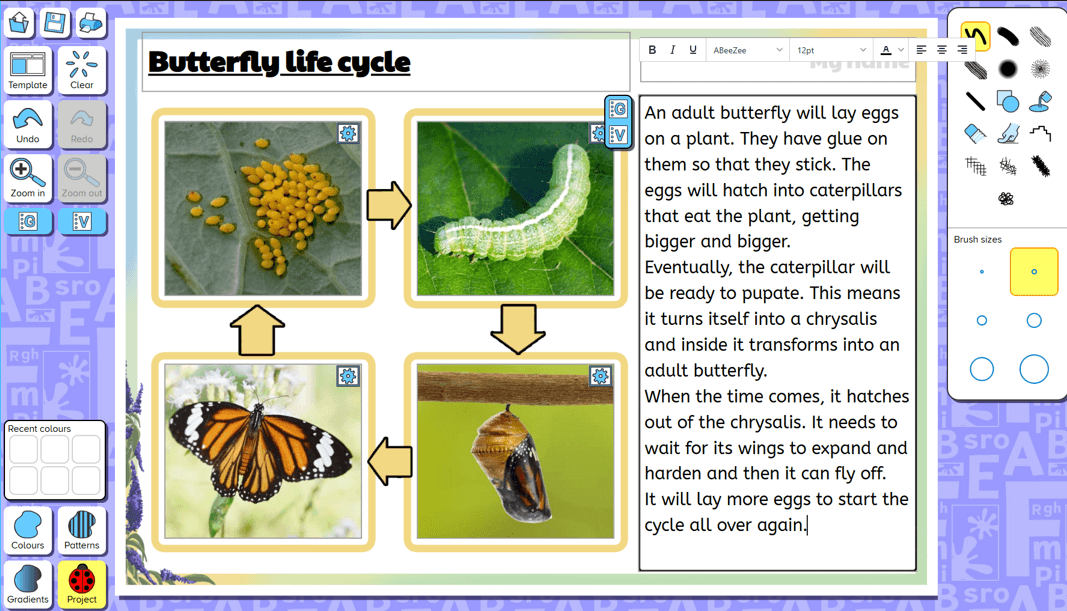
What will your pupils learn?
This activity supports children learning about what happens at each stage of the butterfly’s life cycle and allows them to go into the level of detail appropriate for them.
Depending on preference/ability, they can support their words with photos, pre-loaded clip art images or drawings.
4. Energy production
Our over-reliance on fossil fuels has resulted in significant climate change, the impact of which we are seeing in forest fires, flooding and storms. Our interactive ‘Tree World’ game simulates our current position, and allows the children to test and learn different plans of action.
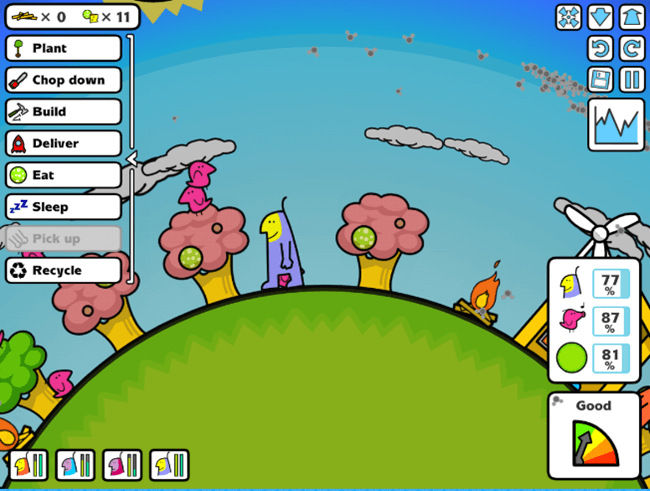
Aim of the activity:
Avoid a climate crisis! Balance the planet so that the Beeples can happily co-exist with Tree World’s flora and fauna.
What will your pupils learn?
This game is a great introduction to the carbon cycle. It will help the children understand the impact of fossil fuels and why trees are so important.
Play it today and let your pupils discover the answers for themselves!
5. Inventions
New inventions change the world we live in and often cause us to adapt in response to them. It’s difficult for us to think of a world without modern technology, let alone basics like lightbulbs and telephones. Our last activity, Victorian inventions, asks pupils to consider just this though: what would having light at the touch of a button mean to you if you’d never experienced it before?
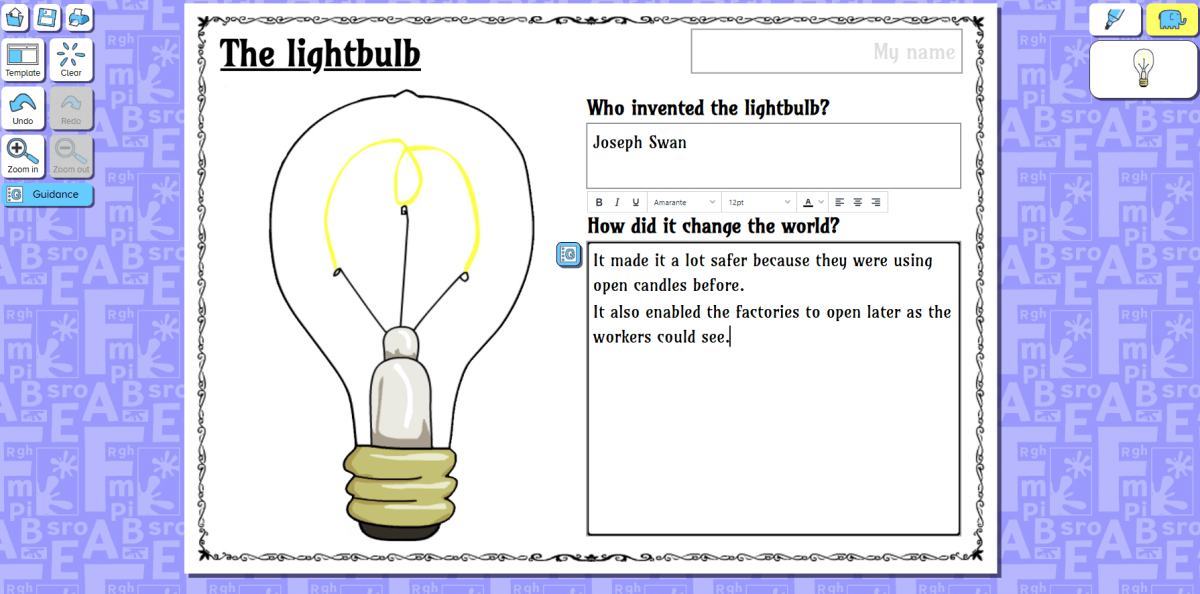
Aim of the activity:
To write about the invention of the lightbulb (or telephone)and consider the impact it would have had.
What will your pupils learn?
Your pupils will learn the historic facts behind each invention, and is great for developing critical thinking and empathy.
Summary
We hope this blog has given you some ideas to help you cover the ‘Change and adapt’ theme of British Science Week this year. It’s a far-reaching theme, which can be looked at in a multitude of ways and across the curriculum!
Want to see the Busy Things activities we’ve mentioned?
Within this blog, you’ll see we’ve mentioned some of our activities. If your school subscribes to Busy Things already, you’ll be able to them by simply typing their titles into the Search feature.
If you don’t already subscribe but would like to see them, we’d love you to take out a free 28-day trial with us! Simply click here for this. You’re more than welcome to have a virtual tour via Zoom too. If you’d like one, contact us here and we’ll get it organised!